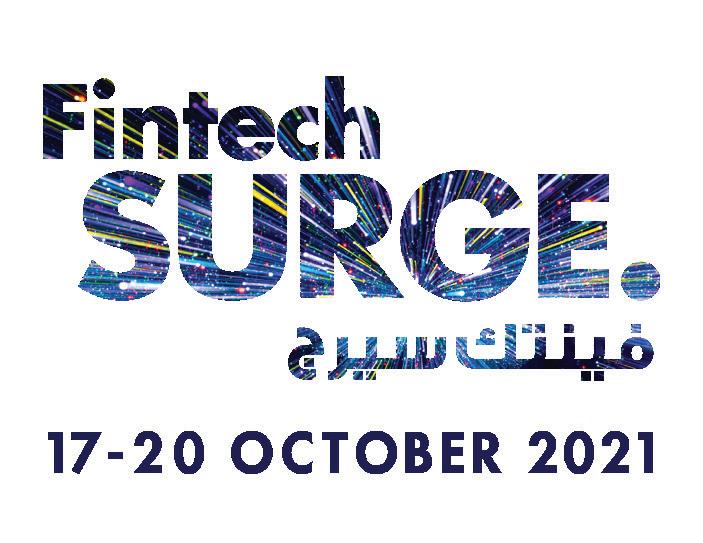
4 minute read
Cashless Dubai Initiative reports major progress
from May June 2021
by MEA Business
As part of the Fintech Surge interview series for the Future Blockchain Summit from 17 to 20 October at the Dubai World Trade Centre, Meera Alshaikh, Head of International Relations and Partnerships, Smart Dubai Department, talks about the myriad benefits for both the public and private sector as it transitions to a cashless society, spurred on by the government response to the Covid-19 pandemic and its vision to develop the emirate as a Smart City.
By: Oscar Wendel, Senior Content Manager of Fintech Surge taking place on October 17 - 20 at Dubai World Trade Center
Advertisement
The Cashless Dubai Initiative being spearheaded by the Government of Dubai is bearing fruit after an intensive six to eight months, reports Meera Alshaikh, Head of International Relations and Partnerships, Smart Dubai Department. The initiative kicked off in later 2019, quickly gaining prominence due to the impact of Covid-19. “The shift towards a cashless society has many important returns for cities and countries and has gained enormous importance in recent times, as cashless payments are perceived as a safer way to limit the spread of the coronavirus,” comments Alshaikh. A recent survey by global public opinion and data company YouGov has made it possible to quantify the impact of Covid-19 on payments and shopping behaviour: An astonishing 71% of retail consumers prefer digital channels over cash and 61% of e-commerce consumers use cash and use cards and wallets more than the cash-on-delivery option online.
In addition, a 2017 report by Visa on the potential benefits of the cashless society estimate an AED1.88 billion increase in government revenue, an AED2.2 billion increase in individual savings and an AED5.5 billion increase in business revenue in Dubai alone.
“That, of course, is in addition to a wide range of catalytic benefits, such as wage growth and jobs created. So, to that extent, and in line with the leadership’s vision to position Dubai as one of the smartest and happiest cities on earth, the government formed what is now known as the Cashless Dubai Initiative,” explains Alshaikh. The Cashless Dubai Working Group has been tasked to develop and implement a roadmap for a seamless transition towards a cashless society in the emirate. The working group comprises Directors General from all relevant local authorities, as well as related stakeholders such as major banks. The initiative forms part of the Smart Dubai drive by the government to transform the emirate into a preeminent global Smart City. The working group has, to date, identified six major focus areas, namely government services, peer-to-peer transactions, retail and related services, the unbanked and underbanked population and tourism. A major concern being addressed in tandem is the issue of economic security and cybercrime. “There are many enabling factors to ensure we achieve success in these focus areas, such as having an agile and enabling environment for consumer protection,” points out Alshaikh. Collaboration between the public and private sector, especially start-ups, will be critical to support the initiative to

develop fast and reliable technology for such a cashless transition. Innovation will be driven by crowd-sourcing, with the ultimate goal to improve the economic competitiveness of Dubai and the entire region. “We have had extensive brainstorming sessions, culminating in various initiatives currently in the market as we look to enhance the existing solutions so as to come up with more innovative ideas to take them forward,” highlights Alshaikh.
These include a unified payments network in collaboration with the Department of Economic Development in Dubai to enable start-ups to plug their APIs into a unified network for the benefit of both consumers and businesses. “Any companies with APIs that are ready to be added can reach out to us and we can connect them with the team working to take this initiative forward,” reveals Alshaikh. In terms of the future, one of the main goals is to create a universal opensource platform that both companies and individuals can simply plug into. The implications for tourism in particular are far-reaching, especially as it will allow international tourists to Dubai to integrate seamlessly with the cashless society. Another low-hanging fruit for a painless transition to a cashless society is to look at how the Roads & Transport Authority (RTA) can integrate with Smart Dubai.
Alshaikh points out that the RTA’s Nol e-purse system is already a man enabler of what the initiative hopes to achieve over the next few years. “It is all about generating opportunities and ensuring convenience. If you are an individual who is not open to the idea of a cashless society, then we also want to strive to provide you with the option to use your local currency.” It is this flexibility and adaptability that is fast accelerating the transition to a cashless society in Dubai, and also setting a global benchmark in terms of its regulation and implementation. “We are constantly looking at global best practice in this regard and how to apply it locally. We are very excited at what we have been able to achieve in a short period. Many countries have been working on such a framework for far longer with fewer tangible results, so we are very optimistic about our achievements to date and our future goals,” concludes Alshaikh.










